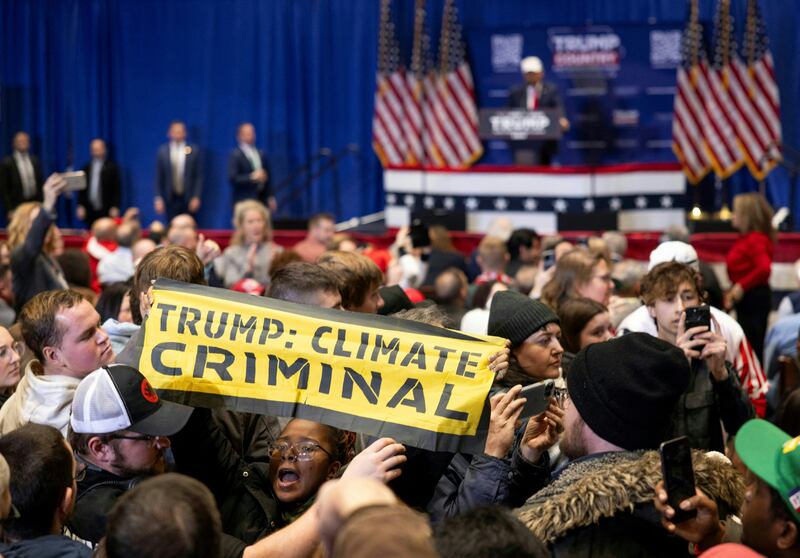BANGKOK - An international legal judgment on governments’ obligations to prevent human-driven climate change has become more crucial after Donald Trump’s election victory raised the prospect of the U.S. again withdrawing from the landmark Paris agreement, a lawyer in the case said.
The U.N.’s International Court of Justice, or ICJ, is set to begin hearings on Dec. 2 that will culminate in it issuing an opinion on states’ responsibilities and the legal consequences for countries that fail to act. More than 130 nations – but not top polluters China and the U.S. – supported a push by Pacific island nation Vanuatu at the U.N. General Assembly in 2023 for the ICJ opinion.
“All the core norms at stake in the proceedings are norms of customary international law. So, that means that these obligations apply to all states. That is particularly relevant in a volatile political climate,” said Margaretha Wewerinke-Singh, legal counsel for Vanuatu at the ICJ hearings.

During Trump’s first presidency, the U.S. in late 2019 announced its withdrawal from the Paris agreement that obligates countries to make far-reaching changes to limit the increase in average global temperature to well below 2.0 degrees Celsius.
At the time, the State Department cited the “unfair economic burden” imposed on American workers and businesses by U.S. pledges to reduce reliance on fossil fuels under the 2015 agreement. The withdrawal, only briefly in effect because it required a year’s notice, was reversed under President Joe Biden, whose administration began in early 2021.
“There are real threats of, for example, a new U.S. administration again pulling out of the Paris agreement and potentially even pulling out of the climate change convention,” Wewerinke-Singh told a briefing on Thursday. The convention is the foundational 1992 international agreement for preventing climate change.
“So that makes it even more relevant to have a good understanding of what these obligations are, that are universally applicable,” she said.
Vanuatu’s spearheading of the ICJ case has amplified the voices of small island nations whose national interests and even existence are often overlooked as more powerful nations jostle on the international stage.
Collectively, Pacific island nations have made a minute contribution to greenhouse gas emissions but warn they could suffer the brunt of consequences from higher global temperatures.
Tropical cyclones, for example, could become more intense and destructive. Sea-level rise could outpace the natural growth of low-lying coral atoll nations, making them prone to inundation by even normal tides.
Pacific island leaders have said the ICJ case is necessary because of lack of action to implement the Paris agreement. The 29th U.N. climate summit, known as COP, takes place in Baku, Azerbaijan next week.

Vanuatu’s special envoy Ralph Regenvanu said the new U.K. government’s decision to implement an ICJ opinion from 2019 that it should return the Chagos Archipelago to former British colony Mauritius shows the role of political will in international law.
“We hope for the right timing as well. We hope for political situations to get to the stage where countries may actually [act],” he told the briefing.
“I’m sure many countries will abide by the advisory opinion, but there will be changes in circumstances also where we get new governments who are more willing to abide than previous governments,” he said.
RELATED STORIES
UN climate case could be global circuit breaker: Vanuatu official
Vanuatu fights for marine protection at pivotal UN deep-sea mining meeting
Greenhouse gas inventory highlights stakes ahead of annual climate talks
The U.N. court based in The Hague, in the Netherlands, has received 91 written statements from governments and international organizations on the climate change case – the highest number of written statements ever filed in an advisory proceeding before the court.
The court also received dozens of written responses to the initial submissions. It extended the deadline for written submissions several times.
China and the U.S. both made written submissions, as have organizations such as OPEC and the International Union for Conservation of Nature.
Regenvanu said in a statement Hurricane Milton last month showed the U.S., like Pacific island nations, increasingly faces extreme weather.
“This is a shared problem that will not solve itself without international cooperation, and we will continue to make that case to the incoming president of one of the world’s largest polluters,” he said.
Edited by Mike Firn.
